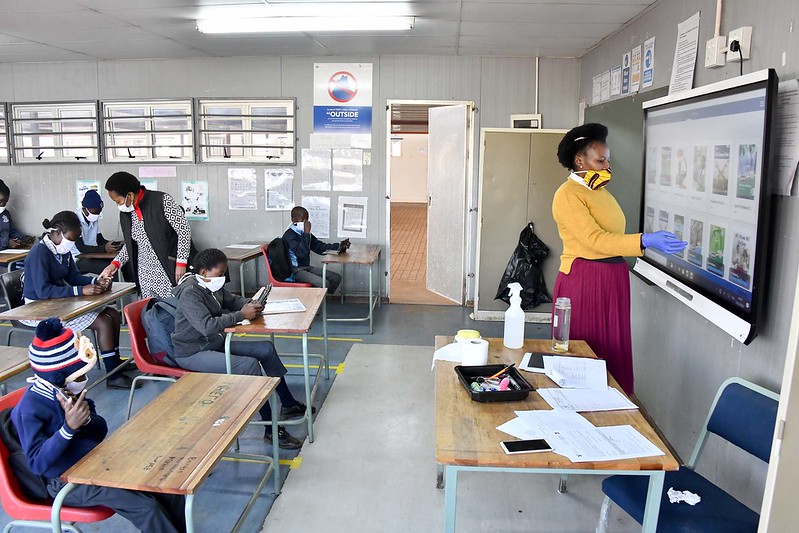Parents, caregivers, or designated family members of learners have the option of not sending learners to school during the national lockdown.
The reasons are according to the Disaster Management Act 57 of 2002 regarding the re-opening of schools and measures to address, prevent, and combat the spread of COVID-19.
President Cyril Ramaphosa last month announced that public schools would take a four-week break as the coronavirus pandemic approached its peak.
A parent, caregiver or designated family member may choose not to send a learner to school for reasons that may include:
- The learner has a medical condition which includes comorbidities
- Anxiety or fear related to COVID-19
- Concern for family members that are over the age of 60
- Concern for family members with comorbidities
- A preference for the learner receiving learning and teaching instruction through the online or virtual platforms
- A learner is self-isolated or quarantined due to being in contact with a person who tested positive or displaying symptoms of COVID-19
- The learner is isolated following testing positive for COVID-19
- Learners who have already applied for the full or partial exemption from compulsory school attendance for any of the reasons listed above
According to the Act, a parent, caregiver or a designated family member who chooses not to send a learner to school for any reasons contemplated in 1, 2, 3 and 4 must apply through the learner’s school according to section 4 of the South African Schools Act to the Head of Department (HOD) or to an authorised person.
If a parent chooses to deregister their child from school for home education it must comply with the legal requirements for home education.






